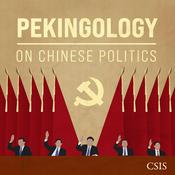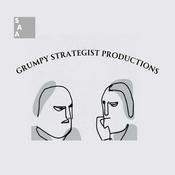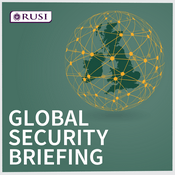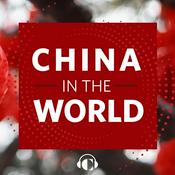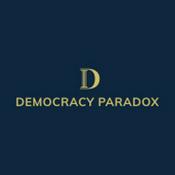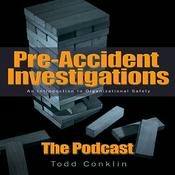686 episodes
- On August 8, 2025, President Donald Trump hosted Azerbaijani President Ilham Aliyev and Armenian Prime Minister Nikol Pashinyan at the White House for a historic peace summit, the first trilateral meeting of its kind since the end of the Cold War. The two leaders initialed a peace agreement, signed a joint declaration affirming their commitment to respect sovereignty and territorial integrity, and announced the Trump Route for International Peace and Prosperity (TRIPP), a United States–developed transit corridor that will connect Azerbaijan to its Nakhchivan exclave through Armenia while anchoring American investment and presence in the region for decades to come.
Vice President JD Vance’s recent visit to both countries underscores what the White House values in this new chapter: deepening its strategic partnership with Azerbaijan, advancing peaceful nuclear and semiconductor cooperation with Armenia, and ensuring that this hard-won peace endures.
Join Hudson for a conversation with officials who have been at the center of these efforts, financial experts, and leading regional analysts on what the deal achieved, what comes next, and why sustained US engagement in the South Caucasus matters. Toward a Stronger US-Taiwan Partnership: Unpacking the Agreement on Reciprocal Trade
20/02/2026 | 50 mins.On February 12, officials from the United States and Taiwan signed the Agreement on Reciprocal Trade (ART), a trade deal that “reflects both sides’ ambition to increase bilateral investment and commercial opportunities.”
The deal removes significant tariff and non-tariff barriers, accelerates bilateral trade through an increase of sales of US goods to Taiwan, and expands on an investment deal announced a month ago in which Taipei committed to funding and financing up to $500 billion in new investment in the United States.
Join Hudson for an expert panel on why these deals are so important for both nations, what they mean for the future of US supply chains, and what potential challenges remain for implementing these deals.The Economic Case for the US-Israel Partnership with Minister of Economic Affairs Noach Hacker
19/02/2026 | 58 mins.The Center for Peace and Security in the Middle East will host a fireside chat between Israeli Minister of Economic Affairs Noach Hacker and Dr. Michael Doran. They will examine the economic foundations of the United States–Israel partnership and its growing importance to American prosperity and competitiveness.
Expanding on Hudson’s recent policy memo on US-Israel economic cooperation, the discussion will also explore Israel’s technical edge and how collaboration in artificial intelligence, cybersecurity, and other emerging technologies delivers tangible returns for the United States.Opportunity and Uncertainty in the Middle East: Next Steps for the Kurdistan Region of Iraq
18/02/2026 | 1hFor decades the United States’ partnership with the Kurdistan Region of Iraq (KRI) has been a crucial component of American policy in the Middle East. Today the Middle East holds unprecedented economic opportunities for the US and its regional allies. But the region is also wracked by potential conflicts—especially tensions between the United States and Iran and a fragile truce in eastern Syria. Against this uncertain backdrop, Iraqis are immersed in a complicated, high-stakes government formation process in both Baghdad and Erbil. How will these dynamics shape the future of the US-KRI partnership? What are the most significant opportunities for this partnership? And what do policymakers need to do to mitigate risks to US-KRI mutual interests?
Join Hudson for a deep dive into these topics with Interior Minister of the Kurdistan Regional Government His Excellency Rebar Ahmed, one of the region’s most experienced and respected statesmen. Senior Fellow Joel Rayburn will host Minister Ahmed for a fireside chat followed by audience Q&A.Assistant Secretary of State Christopher Yeaw on the End of the New START Treaty
18/02/2026 | 45 mins.On February 5, 2026, the United States’ last bilateral nuclear arms control agreement with Russia, the New Strategic Arms Reduction Treaty (New START), expired after 14 years. Russia had been violating the terms of the agreement since 2023.
Secretary of State Marco Rubio recently reaffirmed President Donald Trump’s commitment that “future arms control must address not one, but both nuclear peer arsenals.” Rubio also said that even as the United States remains open to diplomacy, it will maintain a “robust, credible, and modernized nuclear deterrent.”
Join Senior Fellow Dr. Rebeccah Heinrichs and Assistant Secretary of State for Arms Control and Nonproliferation Dr. Christopher Yeaw for a discussion on the administration’s priorities for arms control, nonproliferation, and strategic deterrence in an era of complex nuclear threats.
More Government podcasts
Trending Government podcasts
About Hudson Institute Events Podcast
Founded in 1961 by strategist Herman Kahn, Hudson Institute challenges conventional thinking and helps manage strategic transitions through interdisciplinary studies in defense, international relations, economics, energy, technology, culture, and law.
Hudson seeks to guide policymakers and global leaders in government and business through a robust program of publications, conferences, policy briefings, and recommendations.
Podcast websiteListen to Hudson Institute Events Podcast, Pekingology and many other podcasts from around the world with the radio.net app
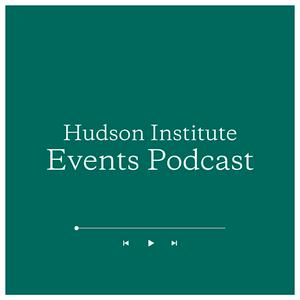
Get the free radio.net app
- Stations and podcasts to bookmark
- Stream via Wi-Fi or Bluetooth
- Supports Carplay & Android Auto
- Many other app features
Get the free radio.net app
- Stations and podcasts to bookmark
- Stream via Wi-Fi or Bluetooth
- Supports Carplay & Android Auto
- Many other app features


Hudson Institute Events Podcast
Scan code,
download the app,
start listening.
download the app,
start listening.


